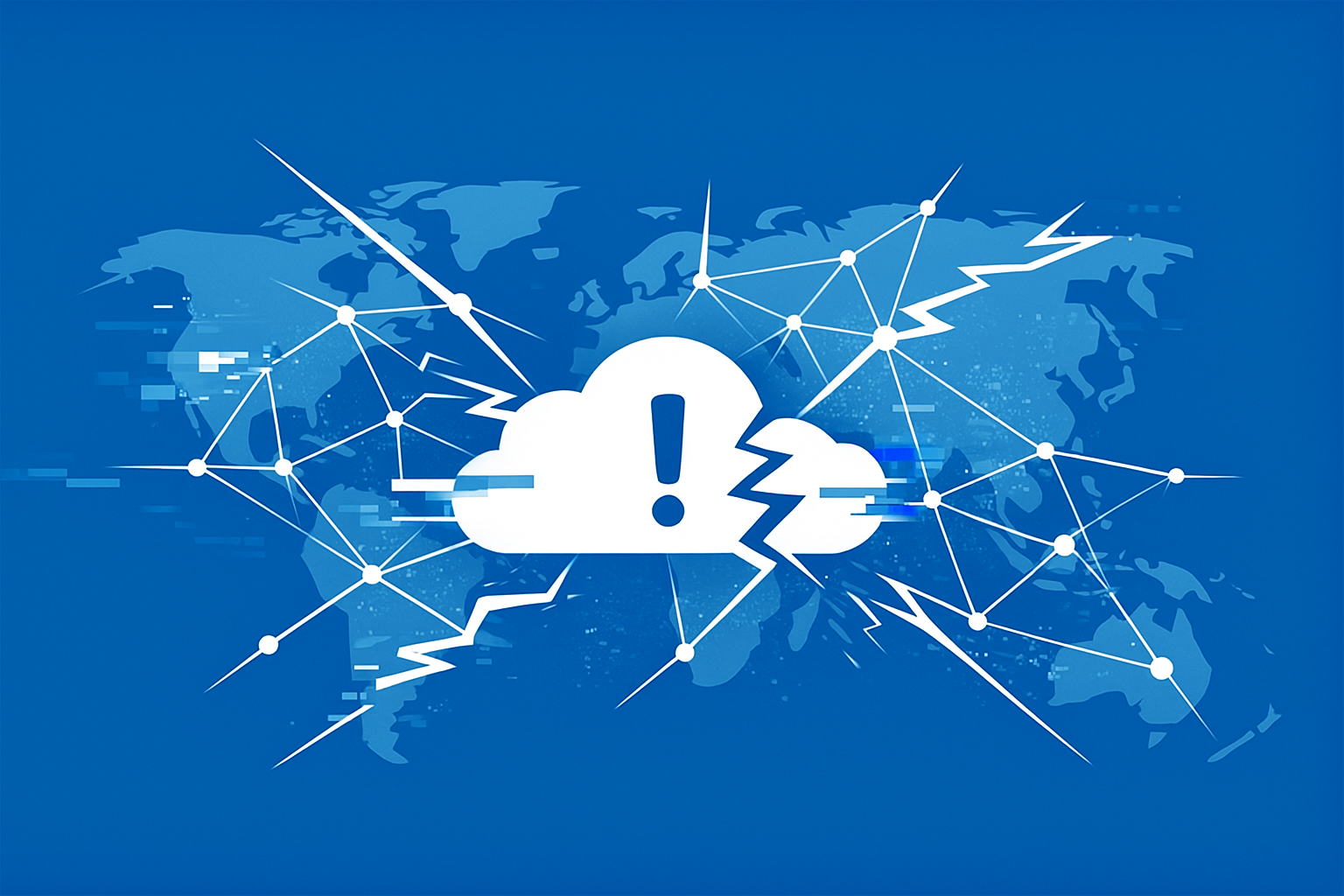When the Internet Had a Meltdown
27 Nov

Introduction
On Tuesday the 18th of November 2025, large parts of the internet took an unexpected half-day. ChatGPT, X, Spotify, Canva and countless other sites went offline at the same time. And no, it wasn’t your Wi-Fi, your laptop, or that software update you’ve been ignoring. This time, the culprit was Cloudflare. A small internal change triggered a chain reaction that disrupted millions of users worldwide, proving once again how fragile the internet can be.
What Actually Broke
Cloudflare acts as the internet’s traffic controller, security guard and bouncer all in one. A massive portion of global web traffic flows through it. A small configuration change triggered a bug, which produced an oversized file that broke their routing system. The result was a global outage across the platforms that rely on them. It was the digital equivalent of misplacing your house keys and accidentally shutting down power for the entire street.
It Wasn’t a Cyber-Attack
Despite the scale of the disruption, the outage wasn’t caused by hackers or malicious activity. It was a human mistake that snowballed into global downtime. For something so widespread, the trigger was surprisingly ordinary. In the world of internet infrastructure, sometimes the most dramatic events have the simplest origins.
Why This Outage Should Matter to You
This incident highlighted how dependent we’ve become on systems we don’t see and don’t control. The idea of “the cloud” suggests something abstract, ever-present and magical. In reality, it’s a collection of physical servers operated by people who can — and will — make mistakes. When one major provider stumbles, the effects ripple outward instantly. The outage reminded us that our digital lives depend on fragile systems held together by layers of complexity.
What This Made Me Think About
As someone who works with servers, security, and networks daily, I wasn’t shocked that something this small caused something so big. But it was a reminder of how unpredictable interconnected systems can be. Technology is built by people, layered with dependencies, and held together by processes that no one person fully understands. That’s why reliability matters, not because “uptime” sounds impressive, but because real people rely on these systems to do their work, communicate, and function normally.
What You Should Take from This
If your apps felt slow, strange or completely unavailable, nothing was wrong on your side. Outages like this are why redundancy matters, why backups need to be real, and why monitoring isn’t optional. Choosing simpler, resilient systems reduces the fallout when the internet misbehaves. The goal isn’t avoiding every outage; it’s ensuring your business keeps running when one happens.
Conclusion
When the internet has a meltdown, it’s rarely your fault and almost never within your control. What you can control is how prepared your business is when something breaks unexpectedly. Keeping systems simple, resilient and well-supported ensures that the next time the internet decides to take a half-day, you don’t have to panic.



Recent Comments